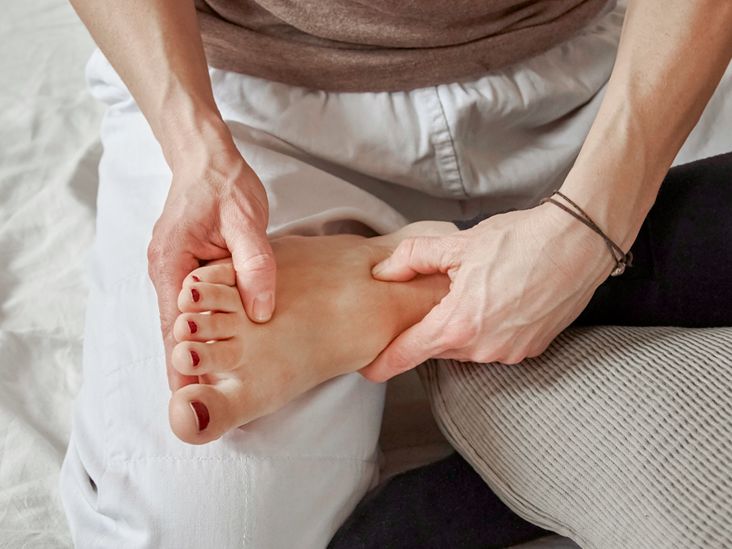Excedrin Migraine comes as a caplet you take by mouth. Each caplet contains 250 mg acetaminophen, 250 mg aspirin, and 65 mg caffeine. The recommended dosage is determined by age and can be found on the product’s packaging.
Excedrin Migraine is an over-the-counter pain relief medication. It’s mainly used to treat pain due to migraine headaches. Here’s what you need to know about how Excedrin Migraine works and how to use it safely.
Talk with a doctor before giving your child Excedrin Migraine
Because Excedrin Migraine contains aspirin, talk with a doctor before giving it to a child or teenager. Aspirin is linked with Reye’s syndrome, a rare but serious illness.
Never give products that contain aspirin to a child younger than 12 years, or to a teen if they’re recovering from a viral disease such as chicken pox or the flu.
Excedrin Migraine is a combination medication. It contains three different drugs: acetaminophen, aspirin, and caffeine. These drugs work in different ways to help relieve your migraine pain.
Acetaminophen
Acetaminophen is a pain reliever and fever reducer. How it works exactly is not known. We do know that it works mainly in the central nervous system, which includes the brain and spinal cord. Acetaminophen increases the amount of pain your body can tolerate by reducing the amount of prostaglandins it produces. A prostaglandin is a substance that’s linked with pain.
Aspirin
Aspirin is a nonsteroidal anti-inflammatory drug (NSAID). It reduces pain and inflammation, which includes swelling and irritation. Aspirin also reduces the amount of prostaglandins the body produces, but differently from how acetaminophen does.
Caffeine
Caffeine is not a pain reliever. Rather, it’s a vasoconstrictor. That means it makes blood vessels narrower. In Excedrin Migraine, caffeine works to narrow blood vessels in your brain. This decreases the amount of blood that can flow through the blood vessels at one time. This action helps combat headaches, which happen when blood vessels widen.
Caffeine also helps relieve a headache if it’s caused by caffeine withdrawal.
Excedrin Migraine comes as a caplet you take by mouth. Each caplet contains 250 mg acetaminophen, 250 mg aspirin, and 65 mg caffeine. The recommended dosage is listed below by age. You can also find this dosage information on the product’s packaging.
Adults 18 years and older
Take two caplets with a glass of water. The maximum dosage is two caplets in any 24-hour period.
Children and teens younger than 18 years
Talk with your child’s doctor before giving your child Excedrin Migraine.
Because it contains aspirin, you should be very careful when giving Excedrin Migraine to children and teens. This is because aspirin is linked with Reye’s syndrome, a rare but serious illness. Never give products that contain aspirin to a child younger than 12 years. And don’t give aspirin to a teen if they’re recovering from a viral disease such as chicken pox or the flu.
Each of the three drugs in Excedrin Migraine can cause some side effects. Some effects may go away as your body becomes used to the medication. But if any of the common side effects cause problems for you or don’t go away, call your doctor. And if you have any of the serious side effects, call your doctor or 9-1-1 right away.
Common side effects
The more common side effects of Excedrin Migraine can be caused by the caffeine that’s in it. These side effects can include:
- nervousness
- feeling irritable
- sleeping trouble
- rapid heartbeat
Serious side effects
The serious side effects of Excedrin Migraine can be caused by the acetaminophen and aspirin it contains. These side effects can include:
- allergic reaction, with symptoms such as:
- trouble breathing
- itchy, red blisters
- rash
- bleeding in the stomach, with symptoms such as:
- bloody or black and tarry stools
- vomiting blood
- upset stomach that does not improve quickly
If you take medication in addition to Excedrin Migraine, it may cause drug interactions. Interactions can increase or decrease the effect of Excedrin Migraine or your other medications. They can also increase your risk of side effects.
Be sure to talk with your doctor before taking Excedrin Migraine if you use any of the following medications:
- blood thinners such as warfarin, rivaroxaban, and apixaban
- nonsteroidal anti-inflammatory drugs (NSAIDs) such as ibuprofen, naproxen, 81-mg or 325-mg aspirin, enteric-coated aspirin, and celecoxib
- gout drugs such as probenacid
- antiseizure drugs such as phenytoin and valproic acid
- medications used to treat clots such as alteplase and reteplaseangiotensin-converting enzyme (ACE) inhibitors such as lisinopril, enalapril, and ramipril
- antacids such as sodium bicarbonate and magnesium hydroxide
- psychiatric drugs such as furazolidone, procarbazine, and selegiline
- antidepressants such as sertraline and venlafaxine
- antiplatelet drugs such as clopidogrel, prasugrel, and ticagrelor
- diuretics such as furosemide and hydrochlorothiazide
- fluoroquinolones such as ciprofloxacin (Cipro), levofloxacin, and ofloxacin
- herbal medications such as echinacea, garlic, ginger, and gingko
- clozapine
- methotrexate
Excedrin Migraine is safe for most people, but it should be used carefully. Some people should avoid it completely. The following warnings can help keep you safe.
Conditions of concern
If you have any of the following conditions, ask your doctor if it’s safe for you to use Excedrin Migraine. This medication may make the following conditions worse:
- liver disease
- stomach problems, such as heartburn, stomach ulcers, or stomach bleeding
- high blood pressure
- kidney disease
- asthma
- thyroid disease
Liver damage
Acetaminophen, one of the drugs in Excedrin Migraine, can cause severe liver damage. You have a higher risk of liver damage if you take Excedrin Migraine and do any of the following:
- use more than the maximum daily amount (two caplets in 24 hours)
- take other products that contain acetaminophen
- consume three or more alcoholic drinks per day
Stomach bleeding
Aspirin can cause severe stomach bleeding. You have a higher risk of stomach bleeding if you:
- are older than 60 years
- have a history of stomach ulcer or bleeding
- also take a blood thinner or steroid such as prednisone, methylprednisolone, or hydrocortisone
- also take other drugs that contain NSAIDs, such as aspirin, ibuprofen, or naproxen
- consume three or more alcoholic drinks per day
- take this product for longer than your doctor recommends
In case of overdose Be sure to follow dosage instructions carefully to avoid the risk of overdose. Symptoms of an overdose of Excedrin Migraine can include:
- pain in your abdomen
- indigestion
- heartburn
- nausea
- vomiting
- jaundice (yellowing of your skin or the whites of your eyes)
If you’re pregnant or breastfeeding, talk with your doctor before taking Excedrin Migraine.
Pregnancy
Ask your doctor if it’s safe for you to take Excedrin Migraine during the first two trimesters of your pregnancy.
You should not use Excedrin Migraine during the last trimester (three months) of pregnancy, as it may harm your pregnancy. This is because Excedrin Migraine contains aspirin. Using regular-strength aspirin often in the third trimester can cause a serious birth defect of your baby’s heart.
Breastfeeding
Be sure to talk with your doctor before using this drug while breastfeeding. Acetaminophen, one of the active ingredients in Excedrin Migraine, is safe for use while breastfeeding. However, the aspirin in Excedrin Migraine can pass into breast milk. Regular-strength aspirin, which is the kind contained in Excedrin Migraine, may cause rash, bleeding, and other problems in a child who is breastfed.
The information in this article can help you take Excedrin Migraine safely. Here are a few things to keep in mind:
- Carefully read the labels of other pain relievers you’re taking before using Excedrin Migraine. Taking other products that contain the same active ingredients as Excedrin Migraine could lead to overdose.
- Limit the amount of caffeinated drinks or foods you consume. This medication contains caffeine, and eating or drinking too much caffeine can make your heart beat faster or make you feel jittery.
- If you have symptoms of an allergic reaction to Excedrin Migraine or have black, tarry stools, call 9-1-1 right away.
If you have more questions about Excedrin Migraine, talk with your doctor or pharmacist.








